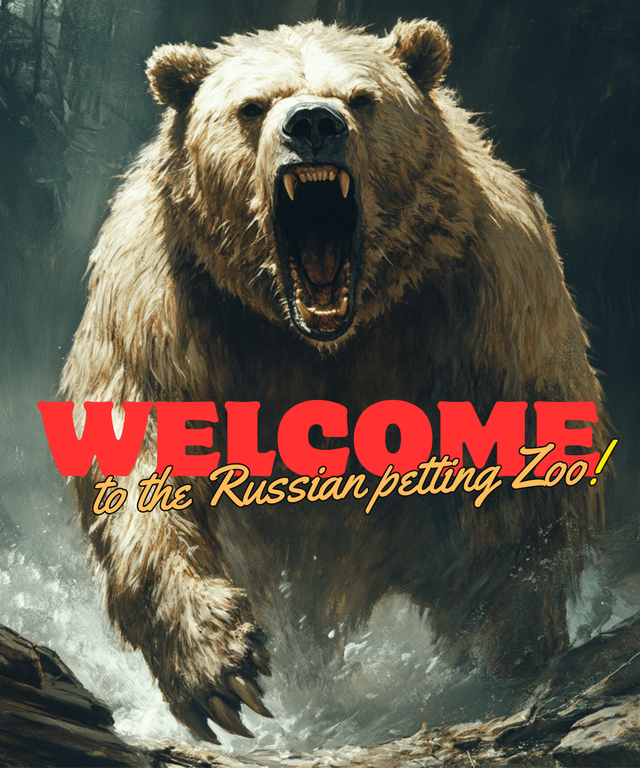Welcome To The Russian Petting Zoo
The saying "Russian Bear" is a popular metaphor used to represent Russia, reflecting its perceived strength, resilience, and sometimes its unpredictability. This association is deeply rooted in history and cultural symbolism.
Historical Context
The bear has long been linked with Russia, both within and outside the country. Western Europe popularized the metaphor in the 17th and 18th centuries to describe Russia's expanding power and influence. To outsiders, the bear symbolized a vast and untamed force that was sometimes gentle and sometimes ferocious.
Cultural Symbolism in Russia
In Russia itself, the bear does not have the same prominence as it does abroad. Traditionally, animals like the wolf or eagle have been more culturally significant. However, the bear has grown in importance, especially in modern times, due to its widespread use as a national symbol. Today, the bear is often seen as a representation of the Russian character: strong, enduring, and adaptable, yet capable of formidable action when provoked.
Modern Usage
The "Russian Bear" is often used in political cartoons, media, and discussions about international relations. While it can sometimes carry a negative connotation—suggesting aggression or clumsiness—it is also embraced positively, symbolizing power and independence.
In contemporary culture, the bear has even been used for branding, such as in sports teams, tourism, and national events, reflecting pride in this symbol.
Contrasts and Misconceptions
The use of the "Russian Bear" saying outside Russia often oversimplifies or misrepresents the nation’s complex identity. While it captures certain traits, it can perpetuate stereotypes that fail to acknowledge the diversity and nuance of Russian culture and society.
In essence, the "Russian Bear" remains a potent symbol of both admiration and caution, evoking the grandeur and mystique of Russia on the world stage.
